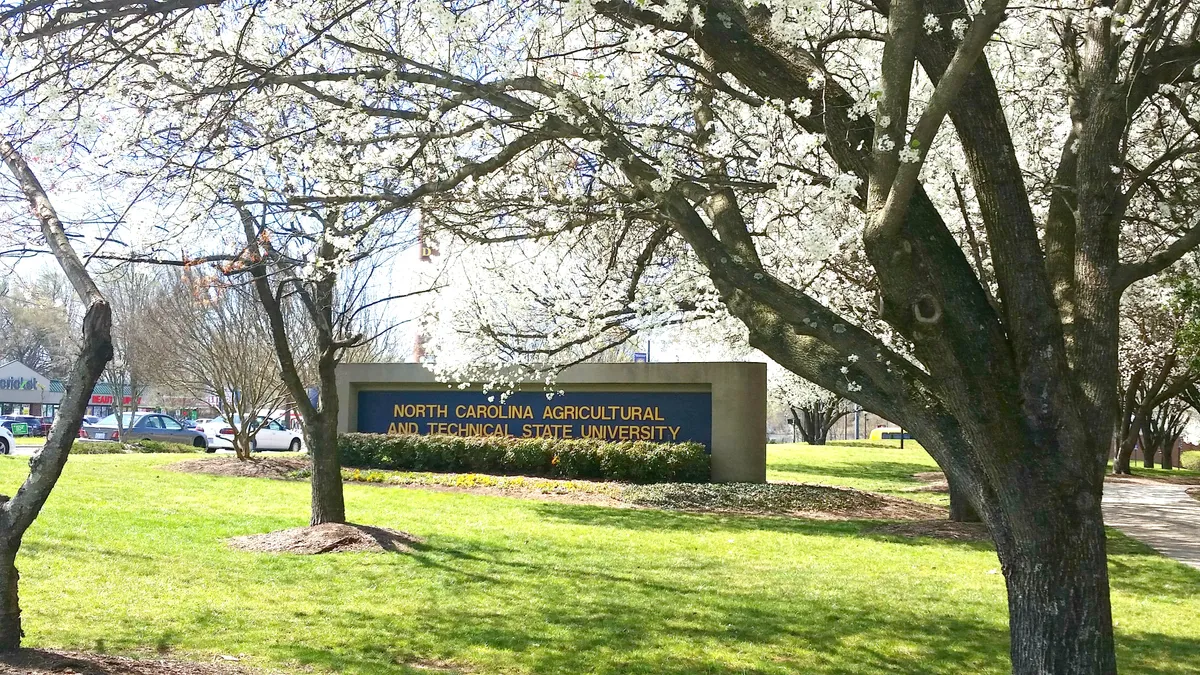Dive Brief:
- The federal farm bill passed in December stands to improve financial flexibility and add funding for 19 land-grant HBCUs, including Florida A&M University, Tuskegee University and Virginia State University, Moody's Investors Service reported last week.
- The bill eliminated a 1977 rule that capped at 20% the amount of federal funds land-grant HBCUs could carry forward for research efforts. The ability to roll over more federal funds "should allow for increased financial flexibility and improved budgeting," the analysts, led by Patrick McCabe, wrote in an investor note emailed to Education Dive.
- The bill also includes $10 million in funding per year through 2023 to create at least three "centers of excellence" that will focus on areas such as student success, workforce development, and health and quality of life. In addition, $40 million will be divided among the HBCUs for student scholarships.
Dive Insight:
While the farm bill's provisions are relatively modest, they represent a commitment from the federal government to the colleges as HBCUs across the nation experience deep and mounting financial struggles.
The Government Accountability Office (GAO) found last year that nearly 30% of payments toward HBCUs through a federal loan program were delinquent in 2017, and three of the 46 institutions participating had defaulted.
Research has also found HBCUs pay higher underwriting fees when issuing bonds than other colleges, raising their cost of borrowing, and that their bonds were more expensive to trade in secondary markets. The study, published in the Journal of Financial Economics, found the higher premiums HBCUs encounter appear to "reflect the higher costs of finding willing buyers," and racial bias could be to blame.
Amid these issues, some HBCUs are facing uncertain futures. Bennett College, for instance, must raise $5 million in the next few weeks to retain its accreditation status. Others have only narrowly avoided shuttering in recent years. South Carolina's Denmark Technical College grappled with possible closure after its enrollment plummeted by more than two-thirds from 2014 to 2017, and Knoxville College in eastern Tennessee got permission to reopen online last year after shutting down in 2015 from financial difficulties.
Financial strain also appears to be taking a physical toll on the colleges. HBCUs reported to the GAO that nearly half (46%) of their building space required repairs or should be replaced, according to a June study. In its own review of campuses and master plans, GAO found a significant need to perform deferred maintenance, modernize facilities and preserve historic buildings.
The U.S. Department of Education has a program to help HBCUs secure funding to address their capital needs, but the GAO reported fewer than half have participated in it.
To increase use of the program, the GAO recommended that the Ed Department increase its outreach to HBCUs and consider loan modifications to help colleges' finances. For their part, 45% of HBCU's said lower interest rates were "extremely" important in increasing use of the program among their cohort, and 40% said the same of eliminating a pre-payment penalty.










